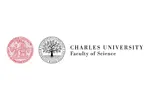

Faculty of Science, Charles University, Czech Republic (the)
Visit course webpageLigand binding is one of the most common and most important functions proteins have evolved to accomplish. Understanding how proteins bind small ligands is useful in designing better enzymes or developing new drugs. Recent advances in biological data acquisition (sequencing, structure determination methods etc.) have brought millions of sequences that need to be annotated and an identification of potential ligand-binding sites and their descriptions are among the annotations that are often attempted.
Our structural bioinformatics group (CUSBG) has developed a ligand-binding site prediction tool P2Rank (https://prankweb.cz/) that is used as a state-of-the-art tool used worldwide. However, P2Rank so far provides only limited descriptions of predicted binding sites. We would like to use a wealth of existing experimental data to study similarities among predicted binding sites to find out which ligands could bind the predicted binding site. We also aim to combine information from multiple structures of a given protein to improve our descriptions. The project will combine advanced machine learning approaches with careful examining of available biological data and its filtering. An oversight over machine learning part of the project will be provided by David Hoksza from the Faculty of Mathematics and Physics, Charles University.
Five relevant publications of the research group:
Jakubec D, Skoda P, Krivak R, Novotny M, Hoksza D. (2022). PrankWeb 3: accelerated ligand-binding site predictions for experimental and modelled protein structures. Nucleic Acids Research, 50 W1 W593-W597.
Jendele, L., Krivak, R., Skoda, P., Novotny, M. & Hoksza, D. (2019). PrankWeb: a web server for ligand binding site prediction and visualization. Nucleic Acids Research 47(W1), W345-W349.
Feidakis CP, Krivak R, Hoksza D, Novotny M. (2022). AHoJ: rapid, tailored search and retrieval of apo and holo protein structures for user-defined ligands. Bioinformatics 38(24):5452-5453. doi: 10.1093/bioinformatics/btac701.
Quaglia F, M
Learn more about Ligand-binding site characterization through machine learning, PhD - at Faculty of Science, Charles University
Visit course webpageContact Faculty of Science, Charles University to find course entry requirements.
This text facilitates quick navigation of the various types of scholarships but does not provide a full list of rules and policies regulating this field. The granting and payments of scholarships is governed primarily by the Scholarships and Bursaries Rules of Charles University (cuni.cz/UKEN-727.html), the Rules for Granting Scholarships at FSc, and the relevant measures issued by the Dean (natur.cuni.cz/fakulta/studium/bc-nmgr/predpisy-a-poplatky/stipendia; Czech only).
Students may obtain the following scholarships:
Certain scholarships are granted to students automatically (without student applications), whereas others are granted further to an application (electronic or paper, depending on the type of scholarship). Bursaries are neither taxed nor included in stated income. You can find answers to frequently asked questions regarding scholarships on the Faculty website (natur.cuni.cz/fakulta/studium/helpdesk/faq-stipendia; Czech only).
For more information check our dedicated website.
There are 136 other courses listed from Faculty of Science, Charles University. A selection of these are displayed below:
A postdoctoral position to study thermal effects in landslides Postdoc
Faculty of Science, Charles University
Find out moreActivation of STING signaling in tumors associated with human papillomaviruses PhD
Faculty of Science, Charles University
Find out moreAdvanced Electron Microscopy Techniques for the Characterization of Tunable Zeolitic Architectures PhD
Faculty of Science, Charles University
Find out moreAmphiphilic Peptidomimetics Containing Metallacarboranes as a Design Strategy for Future Antibiotics PhD
Faculty of Science, Charles University
Find out moreSee other universities in Prague
Find out more about studying in Czech Republic (the)